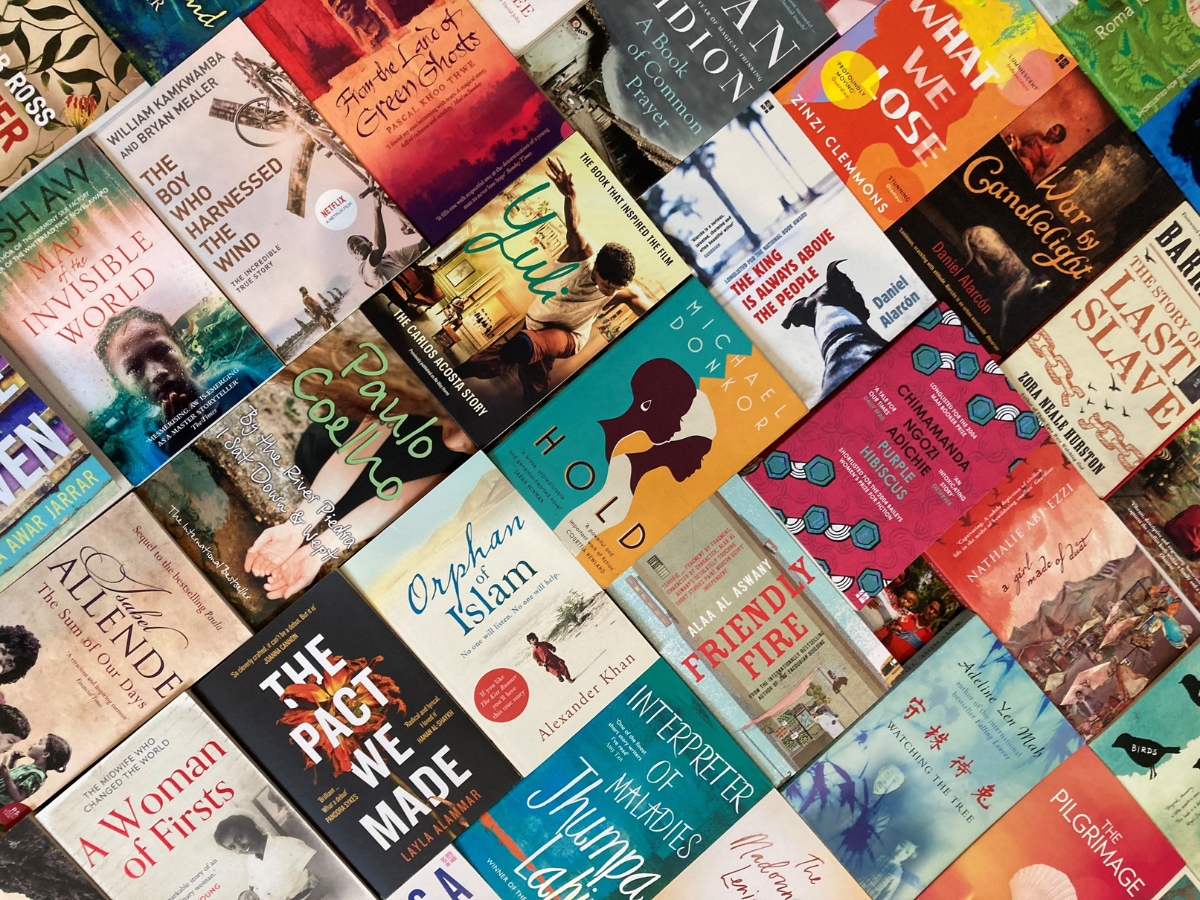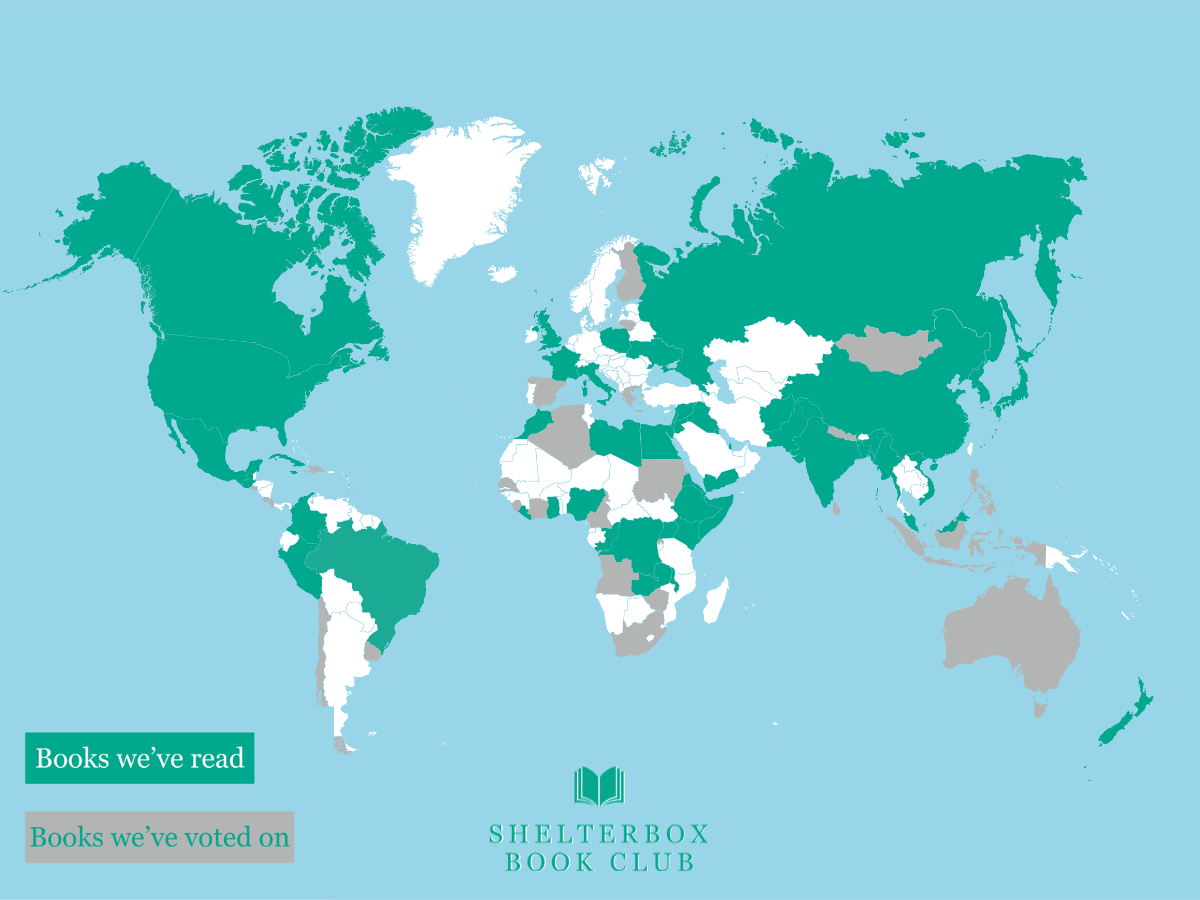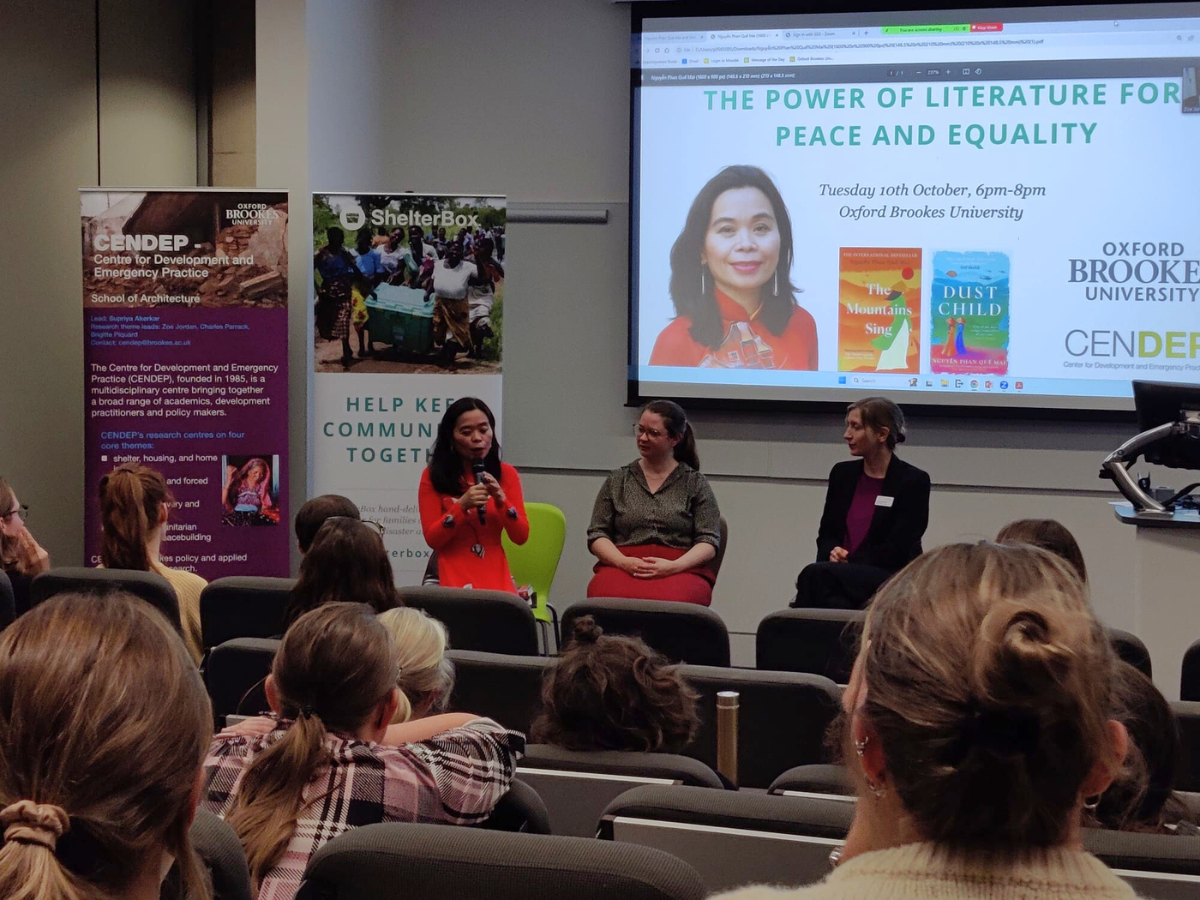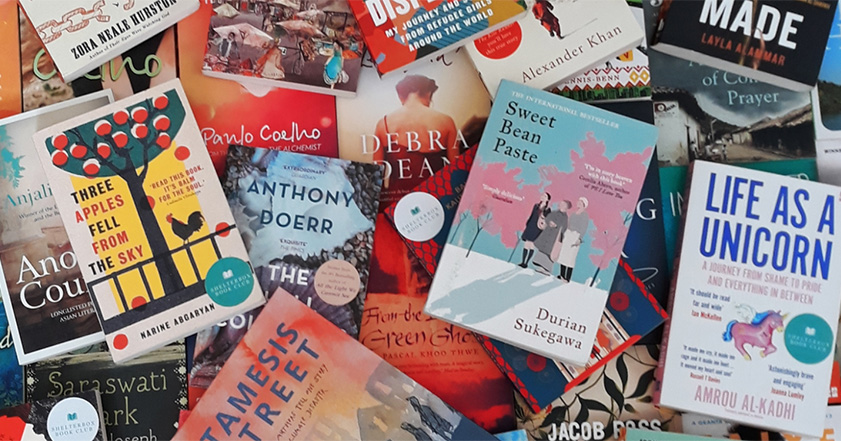We often hear that books can make us more empathetic and can help us to understand our fellow humans in a more nuanced way than news or facts. But have you ever wondered about the psychology and science behind those claims?
In October, the ShelterBox Book Club hosted an event with the Centre for Development and Emergency Practise (CENDEP) at Oxford Brookes University. During the event we discussed the power of literature for peace and equality, and we were joined by celebrated author Dr Nguyễn Phan Quế Mai and academic Dr Andrea Macrae. This is a summary of some of that wonderful discussion.

Narrative
When we see someone driving recklessly, most of us are likely to form a negative opinion of them in that moment. But if we start to imagine the difficult day they might be having, or their destination, maybe they’re desperately racing to help an injured relative, then we begin to soften. With that story in mind, we can empathise. The narrative takes us beyond the instant of judgement to a place of empathy and understanding.
The narrative story helps to connect us to the life that person may be living.

Counter narratives
Everything we interact with, watch, listen to, and read, helps us to build up a bank of narratives through which we understand the world. Over time, some narratives become more dominant. Those that come from people with louder voices, or people in positions of power, with large media reach. But literature can provide us with new narratives that often disrupt the dominant version of events.
The ShelterBox Book Club specialises in stories from the global majority, and communities who have often been talked over. The books we read tell tales that disrupt the romanticisation of war, undermine racist notions of “civilisation,” and describe the long fall out of colonialism. Books like these can ‘give voice’ to underrepresented experiences, bring untold stories to a wider audience, and reposition people often referred to as ‘victims’ in a new light – as people who make, own, and live with their choices.
In a world where complex issues are often boiled down to two simplified and opposing points of view, counter narratives can help bring colour to black and white world views. For instance, in Malala Yousafzai’s We Are Displaced, a former ShelterBox Book Club pick, young female refugees share their experiences. For some there is no narrative arc, no climax, or new equilibrium, but they are centred in their own stories and what they tell of their experiences lets us get to know them and challenges what we know of their contexts.

Narrative Transportation
For many of us, our love of books comes from their ability to transport us to places and lives we could never directly experience. For instance, at the ShelterBox Book Club we’ve read books from the perspective of a celebrated Cuban ballet dancer (Yuli by Carlos Acosta), a paroled murderer in Malaysia (We, The Survivors by Tash Aw), a young girl growing up in Lebanon (A Girl Made of Dust by Nathalie Abi-Ezi), and a non-binary Iraqi drag queen (Life as a Unicorn by Amrou Al-Kadhi) among many others. Stories like these immerse us in often unfamiliar communities and perspectives. We’ve even shortlisted books with non-human narrators like the Gecko storyteller in The Book of Chameleons by José Eduardo Agualusa.
Literature allows us to see the world through others’ eyes. But also, to identify with, feel for and feel with the beings whose experiences we get to briefly share.
In Nguyễn Phan Quế Mai’s beautiful novel The Mountains Sing (another ShelterBox Book Club pick), we are transported through rich evocation to Việt Nam. The sharply drawn descriptions of the landscape and cities, the food and bustle of the family transports the readers mind to the places, and the perspectives through which they are being conveyed. The richness of the world created makes the impact of the book on its readers more powerful.
Theory of Mind
But it is not only the richness of the world that makes it powerful to the reader, it is also the way we connect with the perspective of the story. According to the Theory of Mind, when we read literature, our minds take a series of black marks on a page, and we construct and project whole people with human identities. We fill in the gaps and project ourselves and the people we know into the outline of the characters.
For readers to be able to connect with characters, a character has to be so carefully drawn, with enough detail for us to hook onto, but with enough space for us to fill in and flesh out the character with our own experiences.
Quế Mai is a master storyteller because her characters offer the perfect balance, the right amount of characterisation (not too much or too little) for us to proactively engage in her stories, to project and connect with her characters.
Mirror Neurons
In addition to this psychological view of empathy, there is also a purely cognitive way in which we experience empathetic perspective-taking, namely mirror neurons. These are brain cells which fire both when an individual performs an action and when they observe someone else performing the same action. Mirror neurons also activate when we read about people performing actions and experiencing things.
For instance, if I read about the motion of someone climbing, some of the same brain activity will happen in my mind as if I were climbing myself. Mirror neurons have been described as crucial for empathy and have significant implications for our understanding of social cognition and human interaction.

Personal impact
But, for all the power of mirror neurons and evocative writing there is a missing element. If there wasn’t we would all respond to the same stories in the same way, but that is not the case – we, each of us, empathise with different characters to different extents. We bring our own experiences with us into every book we read and find connection to the ones that chime with our life experiences. Evidence even suggests that we empathise most with characters in a novel who are most like us.
The power of literature for empathy and change
Stories help us to understand the world around us and literature can provide us with a sense of hope in humanity. The existence of books which provide a counter narrative helps us to broaden our world views, and with the power of our minds (and some helpful neurons) we can truly empathise with well-drawn characters and communities.
While it’s true that people with a higher capacity for empathy may enjoy reading more because they’re naturally more able to find the connections which make it so rewarding, it is also true that with exploratory, open minds any readers can find elements in stories which help to foster social change and positivity. Empathy is in many ways a muscle, and the more we exercise it, the easier it is to tap into.
The existence of books like those read by the ShelterBox Book Club and written by Dr Nguyễn Phan Quế Mai offer reassurance, and reaffirmation that many people, writers, and readers, are deeply concerned with confronting justice and inequality, and also with healing wounds, fostering new understanding, and building bridges. Going forward we as individuals and as a society need to keep reading widely and with curiosity, choosing books that challenge us to build a more peaceful and equal world.
Adapted from notes from Dr Andrea Macrae and Catherine Thornhill
If you’ve been inspired by this blog, why not join the ShelterBox Book Club? You can do so here, and membership also makes a great gift! You can also buy books previously featured in the book club online.

